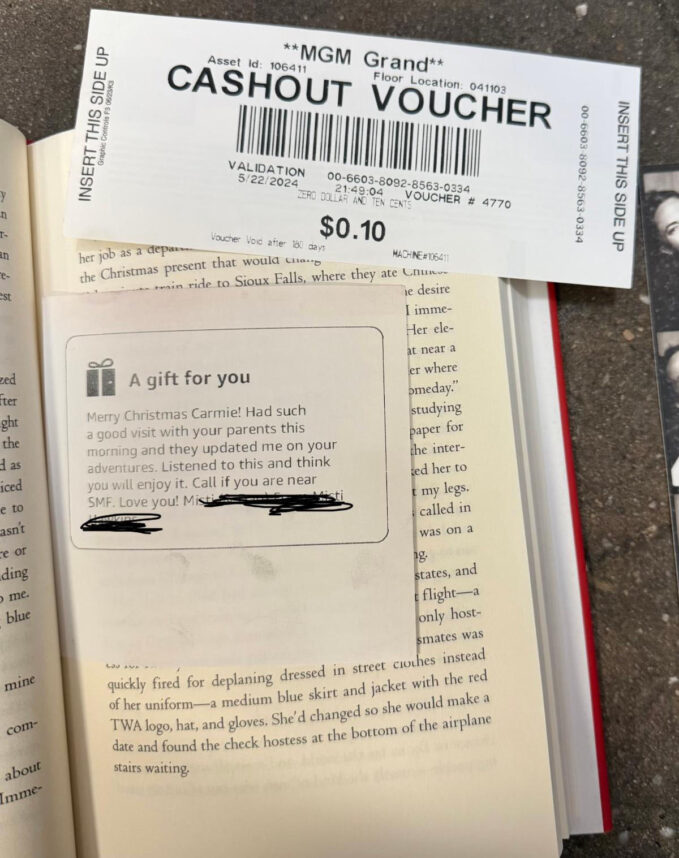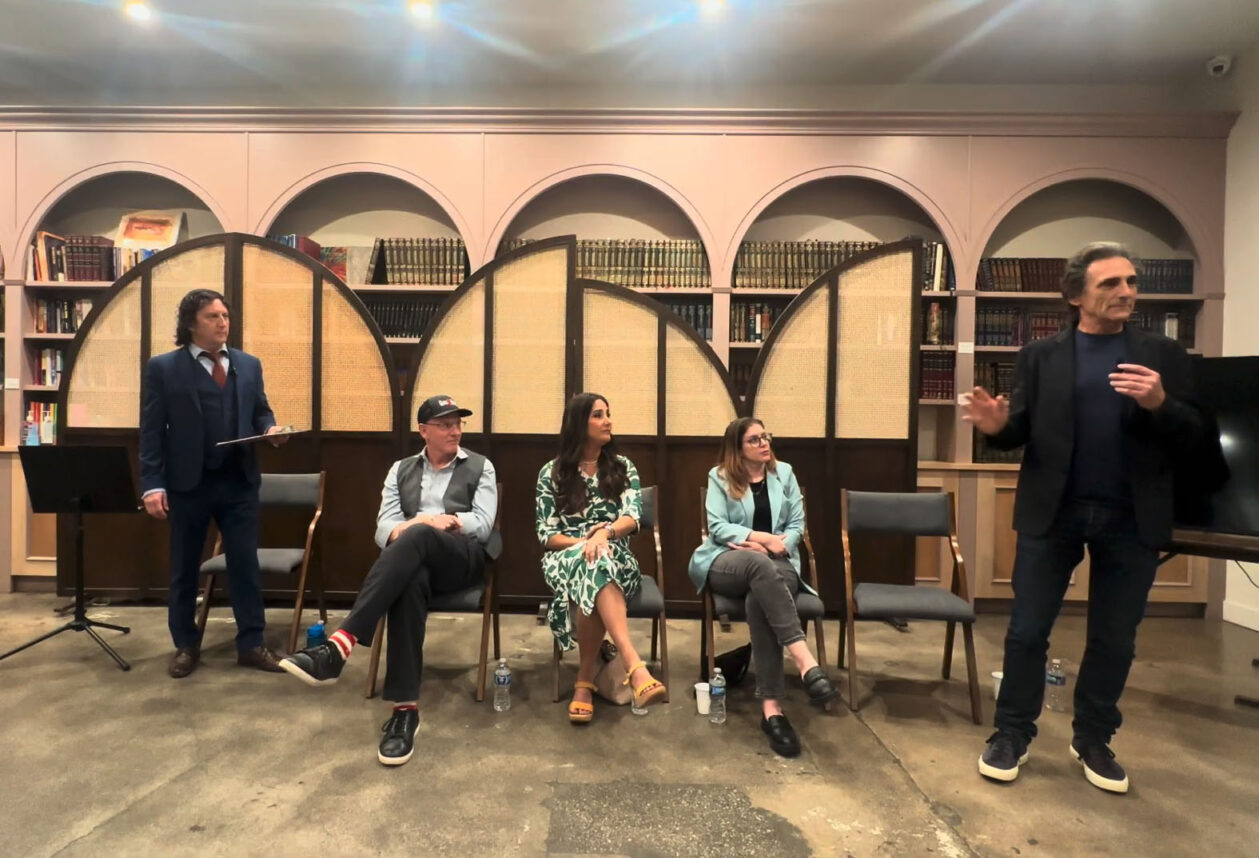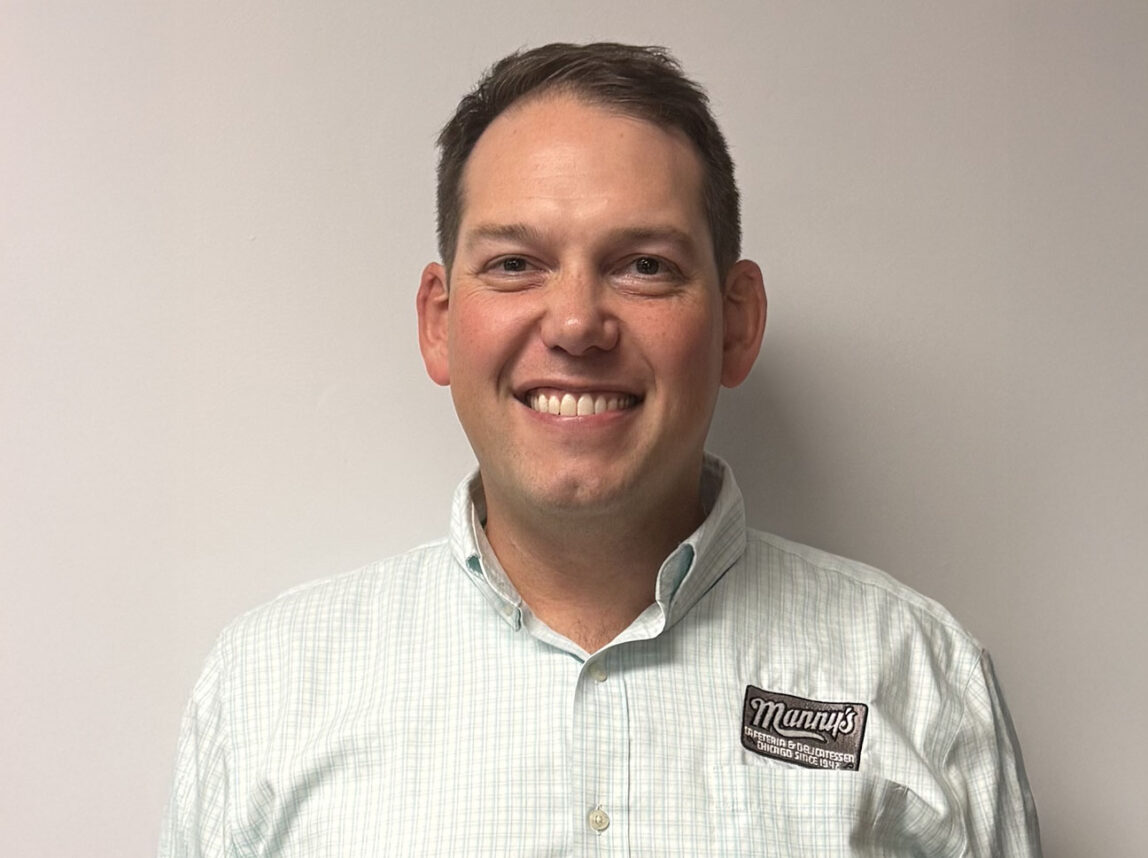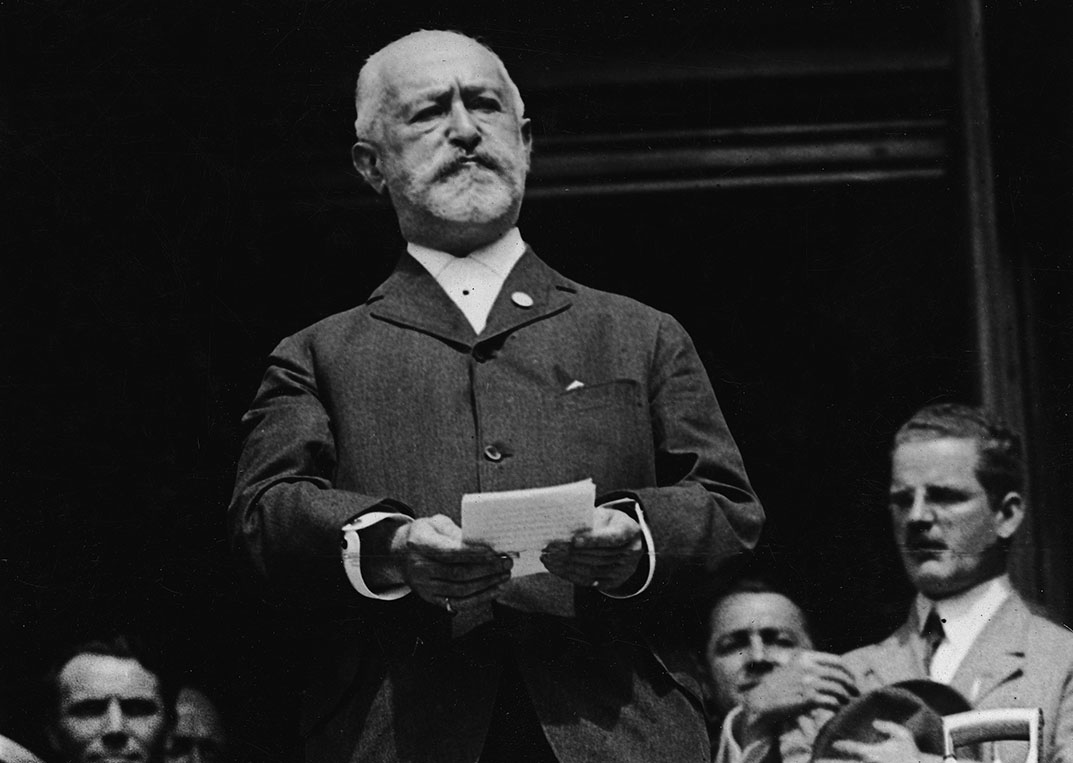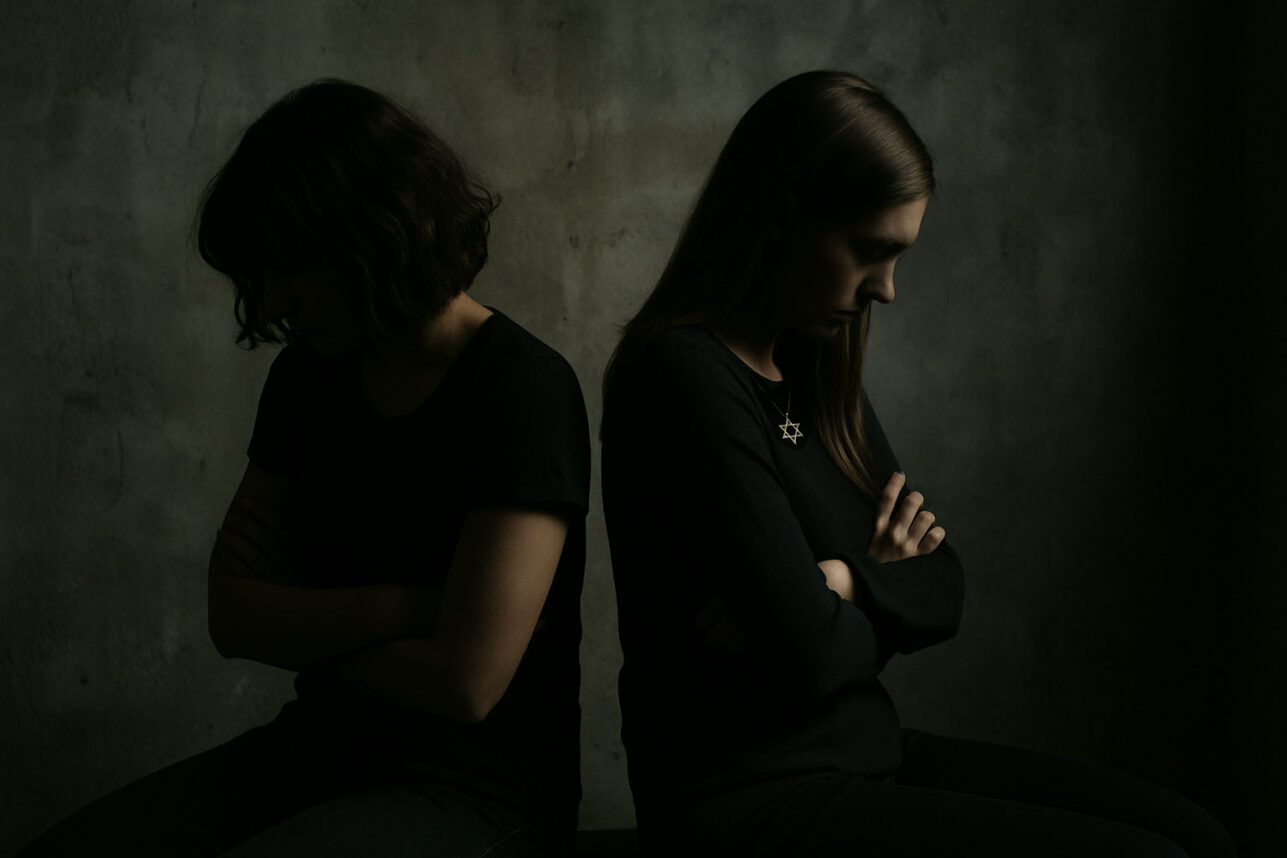We live and learn / We laugh and cry / One day we’re born/ One day we die /
We come from here / We go to there / And we’re all on a journey / To God knows where.
Thus begins the gentle, sometimes hilarious, often poignant and all-true saga, Daniel Cainer’s “Jewish Chronicles.” Based on his family’s history, Cainer’s one-man song cycle, an award-winning perennial favorite at the Edinburgh Fringe Festival, moves from its recent well-reviewed New York run to the Santa Monica Playhouse for six performances, opening Dec. 11.
London-born Cainer had been a songwriter for TV, radio and advertising when a “midlife kosher crisis” prompted him to create the show.
“I was reeling from my marriage failing, and my doctor — perhaps the only non-Jewish therapist in London, who seemed to specialize in lapsed Jews — suggested that you can’t examine who you are without recognizing where you’ve come from.”
During one therapy session, Cainer said, he had a vision of an old rabbi who told him to write down his family’s stories.
“Maybe it was my subconscious giving myself permission to tell them — and embellish them, of course, and to paint bigger pictures than the conventional three- to four-minute song format.”
This is not “Fiddler on the Roof.” Cainer’s songs include stories of a secret, pristine romance between his grandfather and “Aunt” Rae (his grandmother’s best friend), as well as his father’s affair with a launderette femme fatale and a promiscuous, cocaine-addicted and convicted millionaire “bad rabbi” of Manchester, England (not related, but an irresistible story).
The spotlight’s not solely on sex; there’s also Aunt Naomi, who sees a vision of Christ, speaks in tongues and joins a Christian cult.
“There Are No Jews in Recklinghausen” is a jaunty jingle about Cainer’s experience performing at a German arts festival in a town where there have been no Jews since Kristallnacht. He said he had full houses for six nights, “during which nearly a thousand Germans laughed and clapped and sang ‘oy oy vey’ at the tops of their voices. And they thanked me for not banging on about the Holocaust and making them feel guilty … again.”
Cainer, 53, spent his early childhood in London. “We were brought up quite frum — Modern Orthodox — regular shul goers.” But the nearest primary school happened to be the Church of England. “The curriculum was broadly similar to any other school, only with a Christian bias. So my non-identical twin and I would sit in a classroom on our own whilst they did their prayers and hymn singing — we were distinctly isolated and ‘other.’ ”
Life changed radically when Cainer turned 9. His parents divorced, and he “grew up quickly and moved to the north of England, which offers a very different perspective” from life in London, where, though somewhat marginalized, Jews are more readily accepted.
From age 15 to 18, Cainer shared a romance with his English teacher at school (“another long and quite damaging story, perhaps for another time,” he said). Later, he would marry a non-Jewish wife and their 25-year marriage produced two children.
“It is with some regret that I didn’t give them more exposure to some of the tradition,” he said.
His current partner of 10 years is also not Jewish, but that’s not an issue for Cainer. Through his show and in his life, he said he is “seeking more of a spiritual than a religious connection. I go to shul quite regularly — but a few minutes is enough; it’s a bit like plugging into a power source. I identify more with Renewal and Reconstruction, but I miss the traditional Yiddishkayt. So I dabble — culturally, I’m proud to be Jewish.”
Still, Cainer’s songs and stories have universal appeal. “They are as much about the human condition as they are about Jews,” he said. “I condense complicated, contradictory ideas into simple lyrics.” For example, this couplet in “The Ballad of Naomi” hits home:
All the rules and regulations in the sacred ark / Cannot legislate for the ways of the heart.
Cainer believes two key elements make his songs work. “I feel I touch on truths that resonate, and I love making people laugh.”
“Jewish Chronicles” is offering Jewish Journal readers a discount. Use code CHRONICLES at brownpapertickets.com or call (800) 838-3006. Performances take place Dec. 11-21 at the Santa Monica Playhouse, 1211 Fourth Street, Santa Monica.
Sarah Spitz spent 28 years at public radio station KCRW. She writes the “Culture Watch” column for Santa Monica Daily Press.








